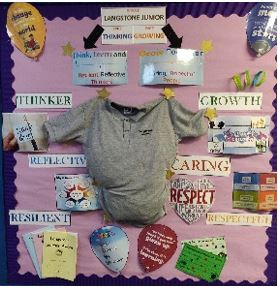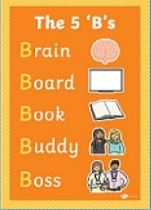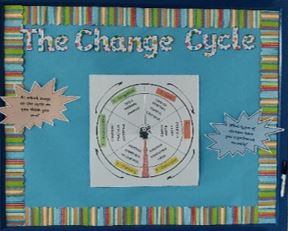Ways to support your child with remote learning
WE ARE ALWAYS LEARNING! Distance learning presents incredible challenges and opportunities for teachers, parents and students. This year’s changing circumstances call for great flexibility and resilience as learning moves from home to school and back again. Everyone’s circumstances are different. More focused and independent learning from home is easier for some students and families than others. Even very digitally-savvy young people may struggle with educational technology.
Establish and maintain clear routines – set up a timetable with regular breaks and keep bedtime routines etc. as they would be if they were attending school.
Help them manage their wellbeing.
- Listen to their concerns – you don’t have to know all the answers!
- Encourage them to talk regularly with friends and family.
- Get them to spend time away from screens e.g. paint, bake, etc.
- Begin and end the day by checking-in, e.g. ‘What classes/ subjects do you have today?’ and ‘What did you discover today?’
- Use the resources and activities on the Google Classroom Wellbeing Page for our school. These include fun activities to do together as well as key contacts for our pastoral support team at school who may be able to offer help / support.
Further advice for parents, guardians and carers on how to support a child/young person if you’re concerned about their mental health from NHS England can be found here: https://www.england.nhs.uk/blog/advice-for-parents-guardians-and-carers-on-how-to-support-a-child-or-young-person-if-youre-concerned-about-their-mental-health/
Help students ‘own’ their learning 

At Langstone Junior Academy, we aim to develop learners who are reflective, resilient thinkers and challenge themselves in all areas of learning both in and out of school. We believe that children need to develop a skills set that enables them to achieve this and become confident ‘Master Learners’.
- Thinking – Encourage your children to plan which resources might help them overcome a learning challenge. Ask them to make connections with previous learning and begin to ask questions to find out more.
- Resilience – When facing a ‘Marvellous Mistake’, encourage your children to identify how it is making them feel and emphasis that making mistakes is the best way of learning. Then discuss a different approach to overcome the challenge for example: using the resources available, watching the supporting videos, joi
 ning zoom meetings or writing down their thinking. Remind them that this links to the 5Bs approach used in school (Brain, Board, Book, Buddy, Boss) to support them to be independent.
ning zoom meetings or writing down their thinking. Remind them that this links to the 5Bs approach used in school (Brain, Board, Book, Buddy, Boss) to support them to be independent. - Reflectiveness – When responding to feedback, encourage your children to remain positive. Take time to think about the successes they have had and begin to plan what changes they might need to make to be even more successful.
Encourage regular physical activity and exercise
Living and working at home, we will all need some room to let off steam. Moving (independently and together as a family) is vital to health, wellbeing, and readiness for learning.
Stay in touch
- Teachers will be communicating regularly through Google Classroom. Stay in contact with classroom teachers to help support the whole family. If you have concerns, let someone know.
- Each year group hold Zoom meetings every weekday which offer the pupils an opportunity to ask questions about their learning or let them interact with other pupils and keep those connections going.
- Each year group have a weekly celebration assembly via Zoom. These are a fantastic opportunity to connect with your class and see the fabulous achievements your year group have made together.
- Connect safely with friends, and be kind. The initial excitement of school being closed will fade quickly when students start missing their friends, classmates, and teachers. Help your children maintain contact with friends in a safe way – remind them to be polite, respectful and appropriate in their communications and to follow school guidelines in their interactions with others.
Talk about ‘The Change Cycle’
 Ask them where do they think they are on the change cycle and how might they move themselves onto the next step of it? See this website for more information: https://changecycle.com/change-cycle/
Ask them where do they think they are on the change cycle and how might they move themselves onto the next step of it? See this website for more information: https://changecycle.com/change-cycle/
Remember to take care of you too!
You cannot pour from an empty cup. It is vital that you make sure you have the right support to manage your own mental wellbeing during these uncertain times. Being part of the University of Chichester Academy trust our parents/carers have access to our ‘Care First’ package, offering 24/7 support via the website or telephone lines.
The link to Care First is below:
https://carefirst-lifestyle.co.uk/
Contact the school office for the username and password
Or you can call Care first for in the moment support on 0808 168 2143 (Freephone number)
Please also be aware that our school staff are here to help guide and support your child. If you feel that you are struggling or feeling overwhelmed, please make contact with your child’s class teacher, Mrs Louise Geall – Home School Link Worker or Mrs Analiese Campbell – Well-Being Lead and we will do our upmost to help and support you as a family.


